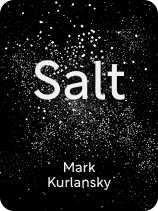

This article is an excerpt from the Shortform book guide to "Salt" by Mark Kurlansky. Shortform has the world's best summaries and analyses of books you should be reading.
Like this article? Sign up for a free trial here.
Why is salt so valuable? What is the history of the salt trade?
According to Salt by Mark Kurlansky, salt was one of the first commodities traded over vast distances. This is because, at one point, salt was precious and humans needed it to survive.
Keep reading to learn why salt’s value was—and still is—extremely high.
The Salt Trade Was Widespread
Why is salt so valuable? Around 2800 BCE, Egyptians exported salted fish to the Phoenicians, who occupied the North African coast where salt could be found. The Phonecians then traded Egyptian salted fish and North African salt with the rest of the Mediterranean.
(Shortform note: Other historical records reveal that the ancient Egyptians may have been engaged in long-distance trade of other goods even earlier than this. Artifacts from the fourth millennium BCE reveal that pre-dynastic Egyptians traded with ancient Mesopotamians. Gold may have been one of the commodities they traded. Furthermore, new archaeological evidence suggests that Phoenicians not only traded salt produced by others (such as Egyptians and North Africans) but also eventually formed colonies on the Atlantic coast of the Iberian Peninsula to produce their own products for export, including sea salt.)
Why was salt such a valuable, widely traded commodity? Kurlansky provides two reasons. First, salt was precious because all humans and livestock need it to survive.
(Shortform note: Humans and animals still need salt to survive today—so why is it no longer considered precious? One reason may be that salt is no longer scarce due to technological developments related to locating and harvesting salt. Only 6% of salt produced today is used for human consumption, suggesting that there’s ample salt to meet our dietary needs.)
Second, salt was widely traded and highly valued because not all regions had easy access to this mineral. Salt industries arose where it was easy to harvest salt, such as areas with plenty of coastlines (for sea salt production). These regions traded with areas that had less access to salt and therefore considered salt highly valuable, such as northern countries whose climates were too rainy or dark to efficiently evaporate water from sea salt.
How Access to Salt Influences Economies Today
Although salt is no longer as scarce a resource today as it was throughout ancient and medieval history, some regions around the world continue to have higher access to salt than others. Because of this, salt continues to be a valuable, widely-traded commodity. It’s not just northern countries that struggle to produce salt: Maps of global salt deposits reveal that some more southern inland areas, such as central Africa, lack access to both coastal sea salt and underground salt deposits. Regions lacking access to natural salt deposits depend on imports from other countries.
Additionally, some areas with access to salt (such as areas with plenty of coastlines) still depend on foreign imports of salt for other reasons. For instance, the Philippines no longer produces much salt and relies on foreign imports for more than 90% of its salt needs. One reason they depend on foreign imports is that salt farms along the Filipino coast have been demolished to make room for commercial ventures, homes, and other industries.
Furthermore, climate change is altering salt production and which regions have access to producing salt:
- In regions that rely on solar evaporation, increased rains are threatening salt production. For instance, heavy rains in Cambodia have led to a steep decline in their salt harvest. As a result, salt prices in Cambodia have surged.
- On the other hand, climate change is causing drought in other areas—drought that improves solar evaporation, boosting sea salt production. For example, sea salt production in France nearly doubled due to droughts that are linked to climate change.

———End of Preview———
Like what you just read? Read the rest of the world's best book summary and analysis of Mark Kurlansky's "Salt" at Shortform.
Here's what you'll find in our full Salt summary:
- The role salt played in driving innovation, building empires, and provoking rebellions
- Why salting food isn’t just about improving its flavor
- How salt played an important role in several independence movements






